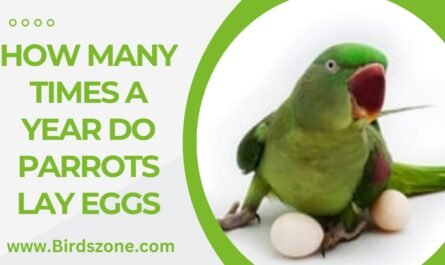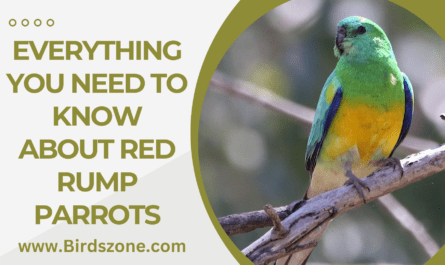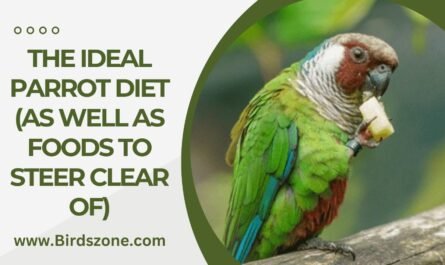Parrots are lively, smart and social animals who require a specially designed habitat to thrive. Knowing what are the perfect conditions for parrots can greatly influence their overall health and wellbeing. This article outlines the best habitat for parrots. It covers the need for housing, social requirements along with environmental enrichment as well as food considerations.
Understanding Parrot Species
Diversity of Parrots
There are more than 400 different species of parrots each one with its own unique traits and demands. From the tiny budgerigar all the way to the larger macaw various species have different needs for spaces, social interaction as well as environmental enrichment. When setting up a space for your pet is crucial to think about the needs specific to the bird species you’ve chosen.
Common Parrot Types
- Budgerigars (Budgies): Small and social, they take up less space, but they get pleasure from having friendship.
- Cockatiels Smaller but bigger, they enjoy the company of other birds as well as a wide range of games.
- African Grey Parrots Very intelligent and social they require plenty of stimulation as well as companionship.
- Macaws They are large as well as active, they need large amounts of space as well as plenty of time to play.
Housing Considerations
Cage Size and Type
The cage is an important element of the parrot’s habitat. The cage must be big satisfying that the parrot is able to spread its wings be able to move about, and participate in normal behaviors.
- Size The general standard is that the cage must be two times the width of the bird, in every direction. If you have larger parrots such as macaws for example, you should consider cages with in the minimum of 48 inches in width and 36 inches deep.
- Bar Spacing The distance between bars needs to be suitable according to the species. For instance, smaller birds like budgies require more space (about 1/2 1 inch) in comparison to larger birds that require more space (1 up to two inches).
- The material of the cage Select high-quality stainless steel or powder coated cages which are sturdy and simple to clean. Beware of cages that contain zinc or lead, since they can pose a risk of poison to birds.
Location of the Cage

The location of your cage in your house is crucial to warrant the happiness of your pet.
- Social interaction The cage should be placed within a busy area that the whole family is in and make sure the bird is able to feel part of the daily routine.
- Beware of Drafts Make sure the cage is clear of sunshine, drafts, as well as extreme temperature variations. Parrots can be sensitive to changes in temperature and may become stressed under uneasy situations.
- Peace Zones Make sure there’s a calm area in which the bird can go when they’re feeling overwhelmed.
Social Needs
Companionship
Parrots are naturally social. When they are in the wild, they reside in groups and their social behavior should be evident in the environment they live in.
- Human interaction Enjoy quality time each day with your pet. Interacting with them as well as playing games and providing tender affection can increase the bonds between you.
- multiple Birds If it is possible think about the possibility of adopting more than one bird. Check that gender and species are in harmony to avoid territorial conflicts.
Recognizing Social Cues
Being aware of your bird’s body language and vocalizations are crucial to develop an enjoyable relation. Watch out for indications of discomfort or stress that include the plucking of feathers or loud yelling that could indicate that you require more interactions with others or more stimulation.
Environmental Enrichment
Toys and Activities
The stimulation of the mind is essential to the wellbeing of parrots. Providing an array of playthings and games helps to keep them entertained and promotes their natural behavior.
- Toys Pick toys that are secure suitable for your pet’s dimensions. It is important to rotate toys often in order to ensure that the toys are fresh and interesting. Find toys that encourage playing, climbing and hunting.
- foraging openings Parrots are naturally foragers. Place treats in toys, or within different parts within the cage, to stimulate the foraging behaviour.
- Interactive Play Interactive Play: Participate in interactivity games such as making tricks to teach or playing with safely-constructed objects.
Natural Elements
Integrating nature-based elements into your bird’s habitat can increase the quality of their lives.
- Perches offer additional a wide range of perches made of different material (wood rope, rope.) as well as different sizes to help promote healthy feet.
- outdoor time If you are able you allow your bird to enjoy outdoor time in a safe cage or harness. The fresh air and sunshine are good, but you should be careful of predators and temperatures that are extreme.
- Plants Use healthy, non-toxic plants in your environment in order to replicate the natural environment. But warrant that they’re healthy for your pet and won’t cause harm to your pet.
Dietary Considerations
Balanced Nutrition
An appropriate diet is essential to the health of a parrot and its wellbeing. A balanced diet can help avoid health problems and contributes to happiness overall.
- Pellets Pellets of high-quality for the main food source. They should be specially designed for the parrot’s breed and dimensions.
- Fresh fruits and vegetables Add to the diet by providing fresh vegetables and fruits. Give them a selection in order to warrant you get all the necessary nutrients and vitamins.
- Nuts and seeds They are appropriate as occasional snacks, but they should not be used to constitute the majority of your diet because of their fat-rich material.
Fresh Water
Always focus on providing the possibility of accessing fresh pure, healthy drinking water. Refresh the water regularly in order to keep it from getting contaminated. Parrots have been well-known for splashing and playing within their water bowls therefore, you should consider with deep bowls in order to allow for the behavior.
Health and Safety
Regular Veterinary Care
A regular check-up with an Avian vet are crucial to keeping your pet’s health in good shape. plan exams can aid in identifying possible health problems early.
Bird-Proofing Your Home
For a secure environment, warrant your home is secured against birds.
- Toxic substances • Keep harmful substances like some household cleaners, plants and chemical substances far from your the reach of children.
- Unlocked Windows as well as Doors Secure the doors and windows to block escapes. Think about installing screens to let the fresh air to circulate without compromising the safety of your pet’s.
- Electronics as well as Cords Protect or secure electronics and cords to avoid chewing or other dangers.
Conclusion
The creation of the excellent atmosphere for a pet involves careful consideration of many aspects, such as the need for housing, social requirements as well as environmental enrichment and food demands. If you grant a secure healthy, stimulating, and loving atmosphere, you can assure your pet has an enjoyable and healthy life. Every parrot is different So, always pay particular attention to your pet’s individual requirements and needs to create an enduring bond and satisfying life



